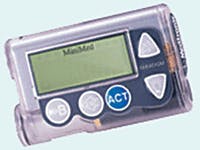The ObservatoryAugust 2003News
West Nile season steps up pace. Starting in July, the entire U.S. donated blood supply is being screened for the West Nile virus, using two tests, one developed by Gen-Probe Inc. in San Diego and one by Roche Molecular Systems in Pleasanton, CA. These donor-screening tests are available to blood-collection centers under FDA-approved procedures, and are being implemented to aid in preventing contaminated blood from entering the nations blood supply. At least three samples of West Nile virus-tainted blood had been discovered as of July 15 with such screening methods.On July 7, the first human case of the West Nile virus this year was confirmed in a 65-year-old avid outdoorsman from Oconee County in South Carolina, who contracted the disease from mosquito bites while fishing. As of July 21, the Centers for Disease Control and Prevention (CDC) announced a total of eight human cases in five states, double the number of cases at this time last year. In addition, this year many more states are reporting West Nile activity in mosquitoes, birds and animals.On July 9, the FDA cleared the first test for use as an aid in the clinical laboratory diagnosis of West Nile virus infection the West Nile Virus IgM Capture ELISA, manufactured by PanBio Ltd. in Windsor, Australia. Focus Technologies, Herndon, VA, has completed clinical trials on its West Nile Virus IgG and IgM ELISA diagnostic test kits and has filed a 510(k) application with the FDA, just in time for what is predicted to be a heavy season for the disease. Focus tests are based on a Flavivirus recombinant protein technology licensed from the CDC, and are labeled for analyte-specific reagent (ASR) use.
Learn about new policy with free CD. Equal Diagnostics offers a free CD with a grant from Genzyme Corp., Changes in Lipid Testing and Medicare Reimbursement, with information on lipid testing, national coverage decisions for lipids and the alignment of these decisions with National Cholesterol Education Program recommendations. Find expert physician analysis, learn about the changing role of direct LDL testing and the impact of reimbursement on the laboratory, and use links to sites that provide updated information. The National Coverage policy now in place affects lipid panel, total cholesterol, HDL cholesterol, direct LDL cholesterol and triglyceride testing, and laboratories have a grace period of one to two years to implement them.
New diabetes management system receives FDA approval. In July, the FDA approved a new insulin pump and glucose (blood sugar) monitoring system to control diabetes by automatically calculating the amount of insulin needed, then sending a radio wave signal to a pump implanted in the patients abdomen to deliver the dose. The Paradigm 512 insulin pump and Paradigm Link glucose monitor were co-developed by Medtronic MiniMed the diabetes-management division of Medtronic and medtech firm BD (Becton, Dickinson and Company). By more closely mimicking the functions of a healthy human pancreas, this system represents a first step toward developing an artificial pancreas. It's
showtimeSept. 14-17. The ICAAC, organized by the American Society for Microbiology, holds its premier annual meeting on infectious diseases and antimicrobial agents at McCormick Place in Chicago. For further information regarding registration, visitwww.icaac.org/ICAAC.asp.Sept. 18-21. The 2003 ASCP Annual Meeting-Pathology Today, sponsored by the American Society for Clinical Pathology, is being held New Orleans. For further information about this event, go towww.PathologyToday.com.© 2003 Nelson Publishing, Inc. All rights reserved.
showtimeSept. 14-17. The ICAAC, organized by the American Society for Microbiology, holds its premier annual meeting on infectious diseases and antimicrobial agents at McCormick Place in Chicago. For further information regarding registration, visitwww.icaac.org/ICAAC.asp.Sept. 18-21. The 2003 ASCP Annual Meeting-Pathology Today, sponsored by the American Society for Clinical Pathology, is being held New Orleans. For further information about this event, go towww.PathologyToday.com.© 2003 Nelson Publishing, Inc. All rights reserved.
About the Author
Sign up for our eNewsletters
Get the latest news and updates




